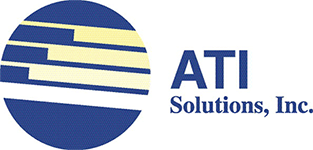 A colocation facility, sometimes called colo or co-location, is a data center created specifically for the housing and storage of servers, computing hardware, and networking equipment. Colocation may be compared to an apartment building, with each secure “unit” rented by a different tenant. The customers can either own their own servers or lease hardware through the colocation provider, but each will rent the space, bandwidth, power, and cooling necessary to house it offsite.
A colocation facility, sometimes called colo or co-location, is a data center created specifically for the housing and storage of servers, computing hardware, and networking equipment. Colocation may be compared to an apartment building, with each secure “unit” rented by a different tenant. The customers can either own their own servers or lease hardware through the colocation provider, but each will rent the space, bandwidth, power, and cooling necessary to house it offsite.
Colocation for Small and Medium-Sized Businesses
Small businesses often begin their online hosting by renting space on a server owned by a hosting provider. As the business grows, it may need its own dedicated server to ensure high levels of connectivity and the security of company information. However, housing the server(s) onsite can be a costly endeavor, especially when it comes to:
- Physical space. Multiple servers may take up whole rooms, decreasing usable floor space that comes at a premium for commercial renters.
- Utility costs. Since information technology hardware must be kept at cool temperatures and require high power levels around the clock, hosting them in-house may be cost-prohibitive.
- Flexibility: Choosing a custom-made building allows customers to personalize their colocation plan and decide which aspects of their system they focus on, choosing from a range of facilities for individual infrastructures and budgets.
- Physical security. Many colocation facilities offer multiple layers of security, including cages, video surveillance, card reader and PIN access, and 24/7 technical support.
- Economies of Scale. Colocation allows custom access to the technology and higher bandwidth requirements at a low cost for each of its customers, making it easy for growing businesses to upgrade without interruption.
- Disaster Recovery & Business Continuity. By placing servers in a data center, customers build in an extra layer of disaster recovery in the event of power loss, enabling them to recover business-critical data. Colocation offers backup generators and several redundancy methods to keep servers running.
- Connectivity. Colocation service providers utilize the investment into the facility to attract major telecommunication companies for wide area network (WAN), internet peering, and service providers like those of Verizon, Cox, Zayo, Comcast, and Lumen. With that investment, it allows each provider to enter the premises with multiple access points creating a multi-redundant web of connections into the building to ensure you have the best bandwidth while being able to choose your carrier.
Still Curious About Colocation Facilities?
In a digital economy, it is vital that businesses have the tools that will allow them to conduct business around the clock while keeping costs low. Our data centers offer all the power, connectivity, protection, and security you need. We treat our clients as part of the ATI family, so when you become a client of ATI, you become a part of our family. Contact us today to get more information colocation facitlities and about how our data centers can serve your needs or set up an appointment to tour our Chantilly facility to learn more about colocation.
|
Related Links: |

